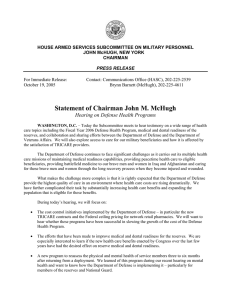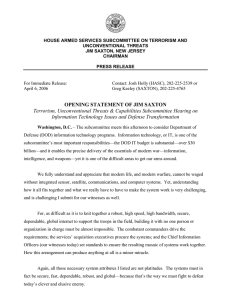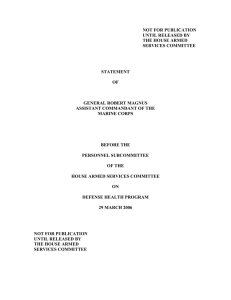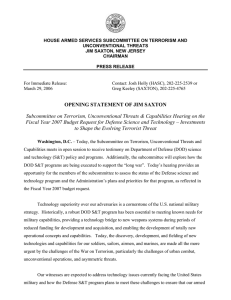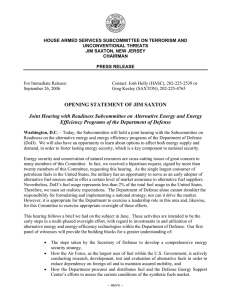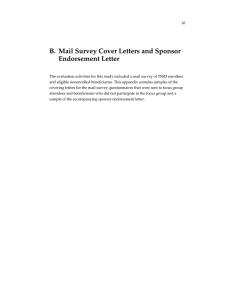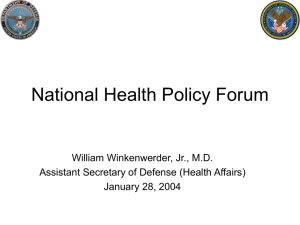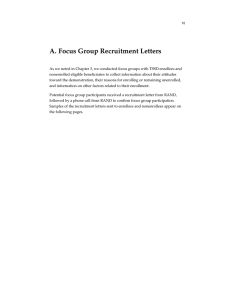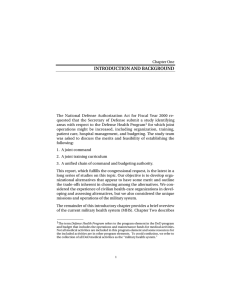For Immediate Release: Contact: Josh Holly (HASC), 202-225-2539
advertisement
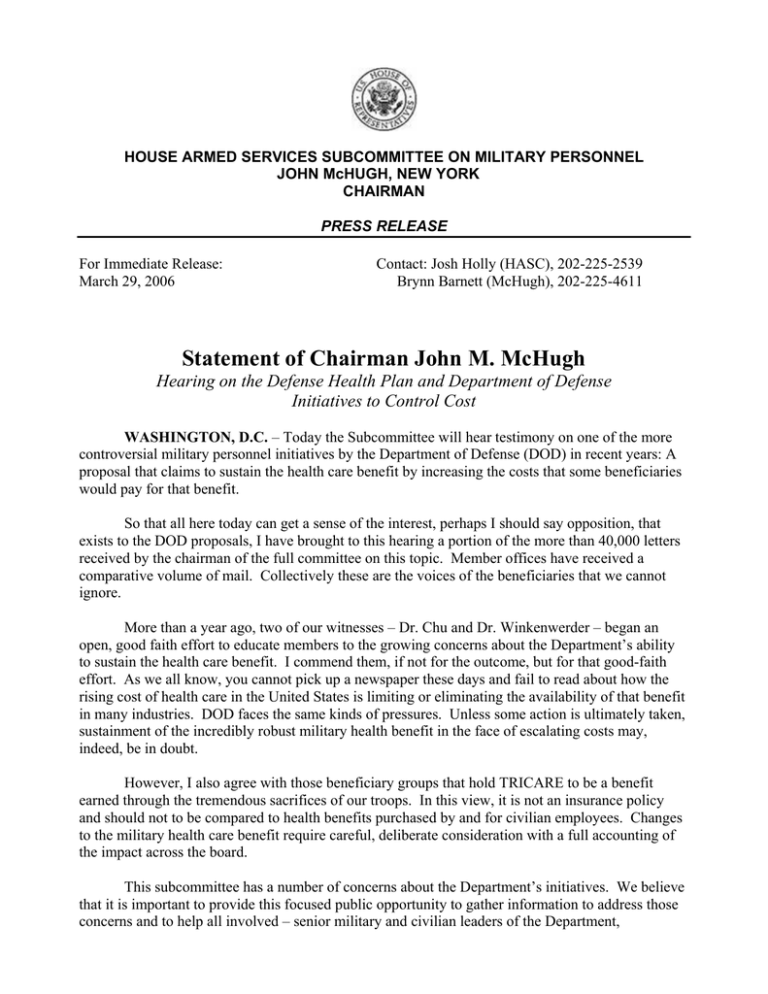
HOUSE ARMED SERVICES SUBCOMMITTEE ON MILITARY PERSONNEL JOHN McHUGH, NEW YORK CHAIRMAN PRESS RELEASE For Immediate Release: March 29, 2006 Contact: Josh Holly (HASC), 202-225-2539 Brynn Barnett (McHugh), 202-225-4611 Statement of Chairman John M. McHugh Hearing on the Defense Health Plan and Department of Defense Initiatives to Control Cost WASHINGTON, D.C. – Today the Subcommittee will hear testimony on one of the more controversial military personnel initiatives by the Department of Defense (DOD) in recent years: A proposal that claims to sustain the health care benefit by increasing the costs that some beneficiaries would pay for that benefit. So that all here today can get a sense of the interest, perhaps I should say opposition, that exists to the DOD proposals, I have brought to this hearing a portion of the more than 40,000 letters received by the chairman of the full committee on this topic. Member offices have received a comparative volume of mail. Collectively these are the voices of the beneficiaries that we cannot ignore. More than a year ago, two of our witnesses – Dr. Chu and Dr. Winkenwerder – began an open, good faith effort to educate members to the growing concerns about the Department’s ability to sustain the health care benefit. I commend them, if not for the outcome, but for that good-faith effort. As we all know, you cannot pick up a newspaper these days and fail to read about how the rising cost of health care in the United States is limiting or eliminating the availability of that benefit in many industries. DOD faces the same kinds of pressures. Unless some action is ultimately taken, sustainment of the incredibly robust military health benefit in the face of escalating costs may, indeed, be in doubt. However, I also agree with those beneficiary groups that hold TRICARE to be a benefit earned through the tremendous sacrifices of our troops. In this view, it is not an insurance policy and should not to be compared to health benefits purchased by and for civilian employees. Changes to the military health care benefit require careful, deliberate consideration with a full accounting of the impact across the board. This subcommittee has a number of concerns about the Department’s initiatives. We believe that it is important to provide this focused public opportunity to gather information to address those concerns and to help all involved – senior military and civilian leaders of the Department, beneficiaries and their advocates, and members of this committee – to collectively begin to discern a way ahead. To that end, we would expect the Department’s witnesses to address our concerns, including that: • • • The proposals rely exclusively on increasing the costs of TRICARE to retirees, rather than on a more balanced approach such as was recommended by the recent report of the Defense Business Board task group on health care for military retirees. The bulk of the anticipated savings are based on questionable assumptions that people would leave TRICARE or use the system less, and there appears to be no alternative in place should those assumptions fail; and, Beneficiaries would be subjected to catch-up cost increases of such magnitude that the rationale for them does not seem either to be based on good business practice or to take into consideration the effects that they might have on such critical considerations as retention. I would point out that one of the reasons the Congress enacted TRICARE for Life – which today contributes to the fiscal challenges of sustaining the health care benefit – is because the senior uniformed leadership of the military services advocated for it. At that time, they believed that keeping the promise of health care for retirees was a necessary component to retaining the force. So, today we want to hear from the service vice chiefs of staff whether they have any concerns about the effect the proposed increases to the cost of retiree health care may have on retaining our incredibly talented and dedicated troops; or what effect such increases would have on the message conveyed to and by recent combat veterans who, when medically retired as a result of their injuries, will have to pay significantly more for their health care. Given the health care cost-growth trends in DOD, doing nothing in the future may not be an option. We have invited our second panel of witnesses to provide insight and recommendations that might help shape the DOD proposals or provide alternatives to them. ### http://armedservices.house.gov/
